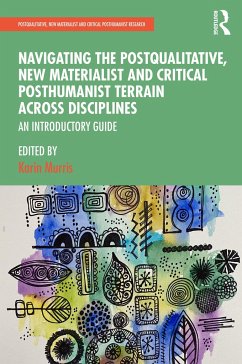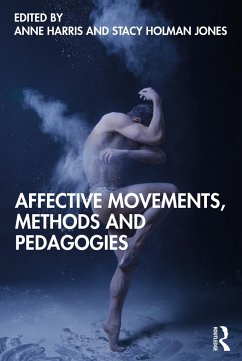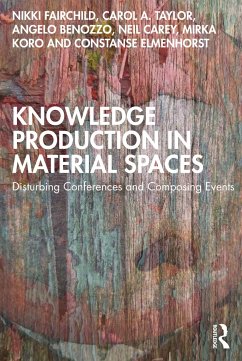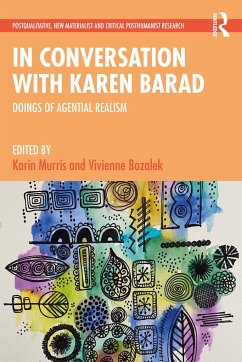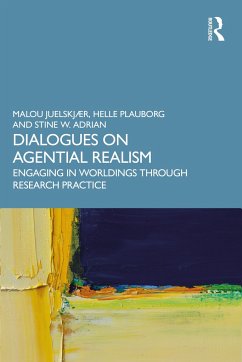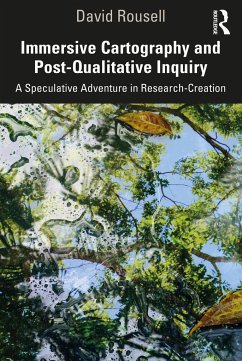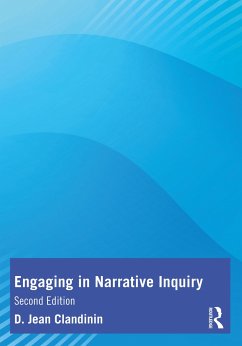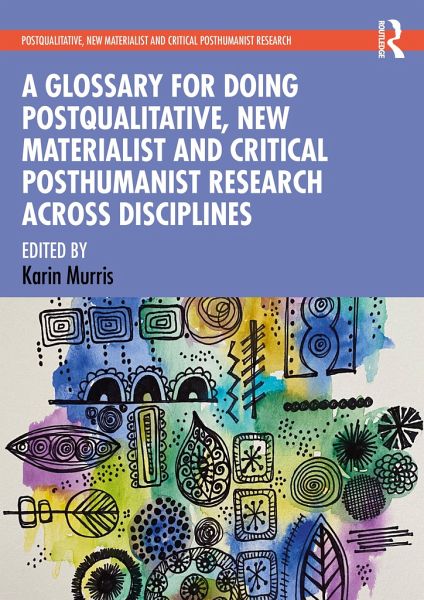
A Glossary for Doing Postqualitative, New Materialist and Critical Posthumanist Research Across Disciplines
Versandkostenfrei!
Versandfertig in 6-10 Tagen
50,99 €
inkl. MwSt.

PAYBACK Punkte
25 °P sammeln!
A Glossary for Doing Postqualitative, New Materialist and Critical Posthumanist Research Across Disciplines gives novices and experienced researchers clear and comprehensible introductions to theories, paradigm shifts and key concepts in postqualitative, feminist new materialist and critical posthumanist research.The ten authors, who have a wealth of experience of teaching and conducting postqualitative research, have explored 72 key concepts and binaries. Supported by links to the series website (https://postqualitativeresearch.com/), this user-friendly glossary contains short entries of the ...
A Glossary for Doing Postqualitative, New Materialist and Critical Posthumanist Research Across Disciplines gives novices and experienced researchers clear and comprehensible introductions to theories, paradigm shifts and key concepts in postqualitative, feminist new materialist and critical posthumanist research.
The ten authors, who have a wealth of experience of teaching and conducting postqualitative research, have explored 72 key concepts and binaries. Supported by links to the series website (https://postqualitativeresearch.com/), this user-friendly glossary contains short entries of the main concepts, binaries and verbs in this field of research. The series website gives practical provocations that characterize the postqualitative terrain. Disrupting the theory/practice divide, the Glossary provides a postqualitative reimagining of traditional research processes while guiding readers through the contestation of binaries and innovative concepts.
The Glossary is an accessible and introductory guide for novice qualitative researchers, and is of use to established academics already working with postqualitative approaches. It is an indispensable companion to the primary texts and original sources by theorists discussed in this and other books in the series.
The ten authors, who have a wealth of experience of teaching and conducting postqualitative research, have explored 72 key concepts and binaries. Supported by links to the series website (https://postqualitativeresearch.com/), this user-friendly glossary contains short entries of the main concepts, binaries and verbs in this field of research. The series website gives practical provocations that characterize the postqualitative terrain. Disrupting the theory/practice divide, the Glossary provides a postqualitative reimagining of traditional research processes while guiding readers through the contestation of binaries and innovative concepts.
The Glossary is an accessible and introductory guide for novice qualitative researchers, and is of use to established academics already working with postqualitative approaches. It is an indispensable companion to the primary texts and original sources by theorists discussed in this and other books in the series.






